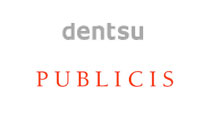 Here’s today’s AdExchanger.com news round-up… Want it by email? Sign-up here.
Here’s today’s AdExchanger.com news round-up… Want it by email? Sign-up here.
Publicis Buys Back From Dentsu
Publicis bought back 7.5 million of its own shares from ad holding company rival and shareholder Dentsu. Back in 2003, according to the Wall Street Journal, both companies had entered into a stock-swap agreement which gave each roughly 10% of the other holding company. Read a bit more from The WSJ.
Startups In Israel
Blogger extraordinaire Robert Scoble takes a trip to Israel and finds 14 Israeli companies that he admires. Scoble writes, “Why should Silicon Valley look to Israel for good ideas? Well, because, simply, this small country has more than its fair share of great ideas, especially when it comes to social networks.”Read more.
What Is The iAd?
Federated Media’s John Batelle takes a run at the mobile marketing sector and tries to divine what Apple is up to . In his post, “The iAd: Steve Jobs Regifts The Mobile Marketing Experience,” Batelle writes,”With iAds, Apple has moved from the business of making ads to the business of selling them. And in the past month or so, Apple’s new team – folks formerly known as Quattro Wireless but now sporting brand new Apple business cards – have started making sales calls at a handful of major brands and their agencies.”
Read more.
Pricing Transparency
After a couple of months of relative quiet, demand-side platform Triggit’s CEO Zach Coelius looks at “Pricing Transparency On Exchanges.” Coelius has good news for certain publishers, “The price good publishers receive per cpm is now as much as twenty times the cpms paid for junk media. As that spread has increased we have seen more and more good media become transparently available on the exchanges.” More here.
TagMan Addresses Consumer Privacy
In an article on MediaPost, TagMan says that in addition to speeding up page load times in a browser, it’s helping protect consumer privacy. MediaPost’s Laurie Sullivan writes, “Tagman has developed a method that allows consumers to make a choice. The company’s Web site offers a tool that lets consumers opt-out of being tracked and targeted, from Google Analytics to other targeting software. Opting out prevents companies from ‘pixeling’ or dropping a cookie in a consumer’s browser.” Read about it.
Sub-$100 Million In Revenue Gets An IPO
Mark Suster host “This Week In Venture Capital” and interviews Jim Armstrong of Clearstone. Suster and Armstrong reviewed the upcoming ReachLocal IPO. Suster writes, “We discussed this deal at length including what amount of revenue does it take to get to an IPO (Jim’s view, sub $100 million is fine as long as you have good margins and a strong growth rate).” Read and see more.
Monopoly? AdMob And Google
Tricia Duryee of PaidContent reiterates that her publication has previously endorsed the AdMob/Google deal and looks at what she sees as the absurdity of blocking the deal- as other mobile ad networks wait for their chance. From PaidConent: “While AdMob and Google (NSDQ: GOOG) together would easily top both charts, there’s several players that could still become market-leading forces despite their relative obscurity. Read more. Meanwhile WPP Group is calling out Google for its imminent purchase of AdMob as anti-competitive. The UK’s Telegraph says WPP CEO Sir Martin Sorrell is urging a ‘rigorous’ investigation of Google AdMob dealRead more.
More Publisher Tips
Avichai Ben-Tzur (Account Manager and PR) of performance marketing company, Xtend Media, gives publishers tips on working with ad networks, “Remember that for your network contact, it’s as if you are the only publisher, but for you, there are many networks (this works both ways BTW). Reply in a timely manner so that opportunities offered by the network can be utilized. This can be short-term CPC campaigns and other short-lived opportunities.” Read it.
Non-Premium Inventory Strategy
Solbright’s CEO Tom Pace argues on iMedia Connection that its time for publishers to step up and get with the opportunities technology is affording with their non-premium inventory. He writes, “The fallacy in the current approach is that the wrong questions are being asked. It isn’t a matter of whether publishers should or should not have a relationship with third-party ad networks, but rather a matter of when and how they should leverage these third-party ad networks.” Read it.
AlmondNet Partners
Search data provider AlmondNet announced that it partnered with demand-side platform Invite Media. According to BizReport, “Through the partnership AlmondNet will provide Invite Media with keyword and segmentation information for the Invite Media user base.” Read more.
Gartner On Cool
AppNexus was one of three vendors (ClipSync and Copia are the other two) identified as “cool” by research firm Gartner in a report released Monday. In order to be classified as “cool”, companies need to show that they “support critical emerging media businesses.” Gartner’s Andrew Frank writes, “AppNexus is a recent entrant to the rapidly expanding category of ad management platforms specializing in real-time advertising (AppNexus typically partners with another emerging set of vendors, demand-side platforms [DSPs]).” Read Gartner’s Cool Vendor Report (PDF).
Chatroulette
What do you do if you’re a young website publisher and you’re looking to expand? You come to America and take money from the bright minds in the venture capital world. But even before the trip, Chatroulette’s founder, Andrey Ternovskiy, “was content to see his success as sheer luck. He had got about ten thousand dollars in investments, mostly from his father, and he was now making fifteen hundred dollars a day in advertising from a Russian dating service called Mamba. He had to use part of that money to pay for fourteen servers in Germany and five programmers in Belarus.” Read more in The New Yorker.











